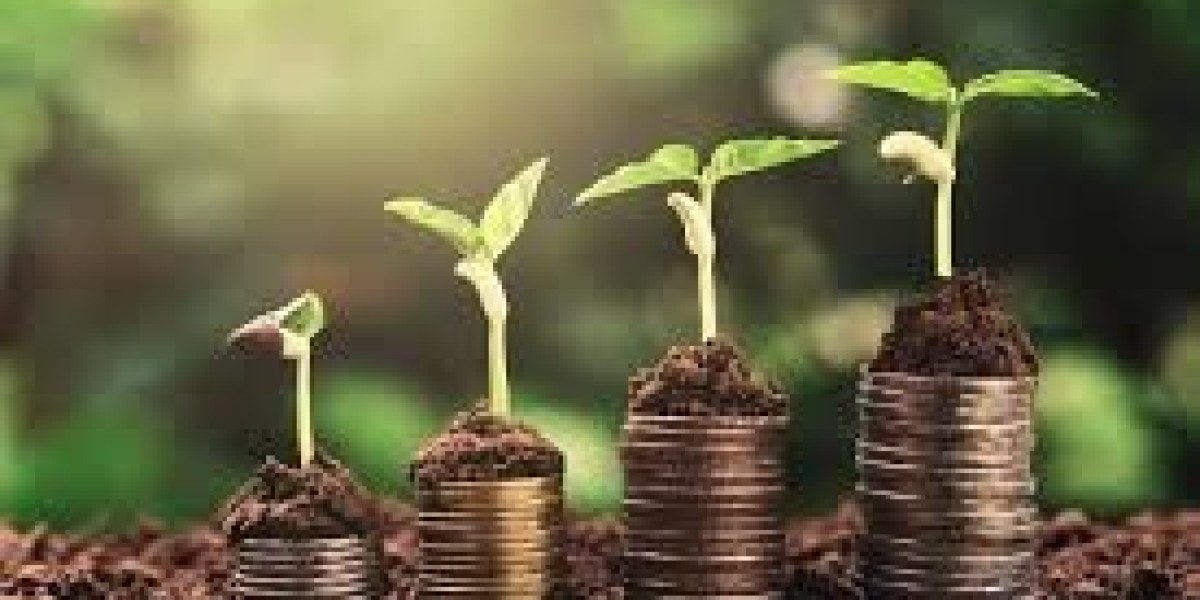When we talk about the future of our economy, sustainability isn’t just a buzzword anymore—it’s becoming the backbone of a growing number of industries. I’ve been thinking a lot about this lately, especially as the push for more eco-friendly business practices and sustainable technologies becomes more evident in markets around the world. The question I keep asking myself is: Can sustainability really drive growth?
As someone who follows trends in both the economy and emerging industries, I’ve realized that the idea of "green economics" is starting to make a lot of sense. Economic growth, traditionally driven by industrialization, fossil fuels, and natural resource exploitation, is now being reshaped by a more sustainable, environmentally conscious approach. But is this shift really practical in the long run? Or is it just a trend?
What is Green Economics?
Before diving deeper, it’s important to define what "green economics" actually means. Green economics focuses on creating economic systems that work with the environment rather than against it. In a world where environmental degradation and climate change are real concerns, green economics aims to reduce waste, lower carbon emissions, and promote sustainable use of resources while still fostering growth and development.
The core idea is simple: economic activities can be organized in a way that promotes sustainability. It doesn’t mean giving up growth; it means creating an economy where growth and sustainability go hand in hand.
The Potential of Sustainability in Driving Growth
Now, I know what you’re probably thinking. Sustainability is often seen as a cost—a way to restrict certain practices in favor of environmentally friendly alternatives. However, when I dig deeper into the issue, I realize that sustainability isn’t just about cutting costs; it’s about creating new markets, innovative products, and opportunities for businesses to thrive in a changing world.
Here’s why I think sustainability can drive growth:
Innovation and New Industries: Green economics pushes companies to innovate. New technologies that reduce carbon footprints, increase energy efficiency, or promote circular economy principles open up new industries and markets. Businesses that embrace these innovations often find new revenue streams, like renewable energy or green construction materials, that weren’t as viable before.
Consumer Demand for Eco-Friendly Products: The shift in consumer preference is real. More and more people want products that align with their values. Whether it’s eco-friendly packaging, sustainably sourced ingredients, or green energy, consumers are willing to pay a premium for products that contribute to a healthier planet. This demand can help businesses tap into new customer bases and drive economic growth.
Cost Savings and Efficiency: Many companies are realizing that sustainable practices can lead to significant cost savings in the long run. Reducing waste, improving energy efficiency, and investing in sustainable manufacturing processes can reduce operating costs while benefiting the environment.
Government Policies and Incentives: Governments around the world are increasingly offering incentives to businesses that adopt green practices. These incentives, whether they’re tax breaks, grants, or regulatory advantages, create a supportive environment where companies can thrive while doing the right thing for the planet.
Real-Life Examples of Sustainability Driving Growth
It’s all well and good to talk about the potential of green economics, but what does it actually look like in action? There are several companies and industries that are already seeing the benefits of sustainability, and their success stories are proof that going green doesn’t mean giving up growth.
Take the electric vehicle (EV) market, for instance. In recent years, companies like Tesla have become household names, not just for their innovation but for their ability to drive growth while reducing environmental impact. The demand for electric vehicles is booming, and this has led to job creation, new technologies, and a growing market that helps reduce emissions.
Another example comes from the fashion industry. Many brands are turning to sustainable fabrics, waste-reducing production methods, and eco-friendly packaging. This trend isn’t just driven by the desire to help the environment—it’s fueled by consumer demand. People are increasingly choosing to buy from companies that prioritize sustainability, helping those businesses grow in an increasingly competitive market.
In fact, the green economy is estimated to create millions of jobs in renewable energy, sustainable agriculture, waste management, and green construction. As more businesses realize the potential of green economics, the opportunities for growth become even more tangible.
Could Sustainability Mean a Better Future?
With the growing success of green initiatives in various sectors, it seems clear that the future of green economics has a promising potential to drive long-term, sustainable growth. By focusing on renewable resources, reducing emissions, and creating green products, we can build a new type of economy—one that grows while safeguarding our planet.
And I’m not just talking about big corporations. Even smaller, more niche markets are starting to embrace sustainability. Take vaping products, for example. As more people focus on making sustainable choices in every aspect of life, industries—including the vaping world—are starting to adapt.
The future of the vaping industry might see more eco-conscious designs and products. For instance, mr fog pineapple might not just be about flavor but could also focus on offering a more sustainable and energy-efficient product design. It’s exciting to think that as the green economy continues to evolve, it could lead to the creation of even more eco-friendly products that don’t sacrifice the quality or enjoyment that consumers love.
What’s Next for Green Economics?
If there’s one thing I’ve learned from looking at green economics, it’s that sustainability isn’t a one-size-fits-all solution. It’s going to look different depending on the industry, the market, and the region. But what’s clear is that businesses of all sizes can contribute to the transition to a more sustainable, growth-oriented economy. Whether it’s through adopting cleaner energy, improving waste management, or supporting local, sustainable supply chains, the opportunities are limitless.
The beauty of this shift is that sustainability doesn’t need to be a limiting factor—it’s about integrating green practices in a way that enhances growth. Just as we see new flavors and innovations within the vaping industry—like the refreshing mr fog mint switch—we can also see new, innovative, and eco-friendly products hitting the market.
At the same time, it’s important to remember that we are all part of this journey. Consumers, businesses, and governments all have a role to play in making green economics a reality. By staying informed, making conscious choices, and supporting sustainable innovations, we can help shape a future where growth and sustainability coexist.
In the world of vaping, this might even mean more sustainable vape products, from the packaging to the ingredients. It could even lead to flavors like the nasty tropic mr fog flavor, which might be crafted with eco-friendly materials or come from sustainable production processes. The potential for sustainability in every corner of the economy is vast, and I’m excited to see where it goes.
The green economy is here, and it’s only going to grow. While the road ahead might have its challenges, the possibilities for businesses to thrive in a more sustainable world are endless. Sustainability isn’t just a moral choice—it’s an economic opportunity. And I’m here for it.









